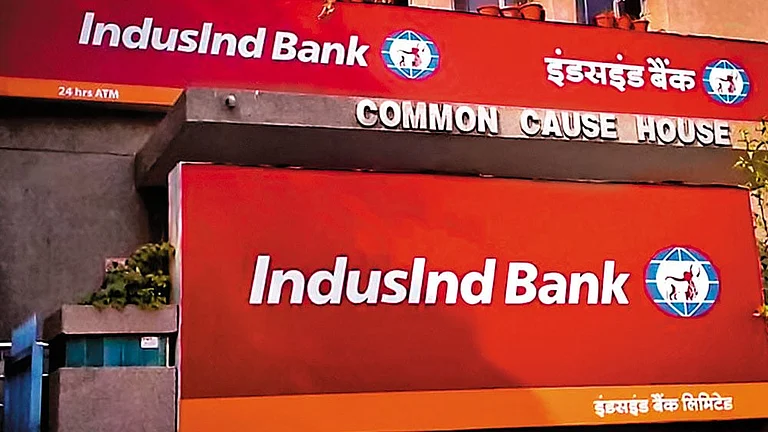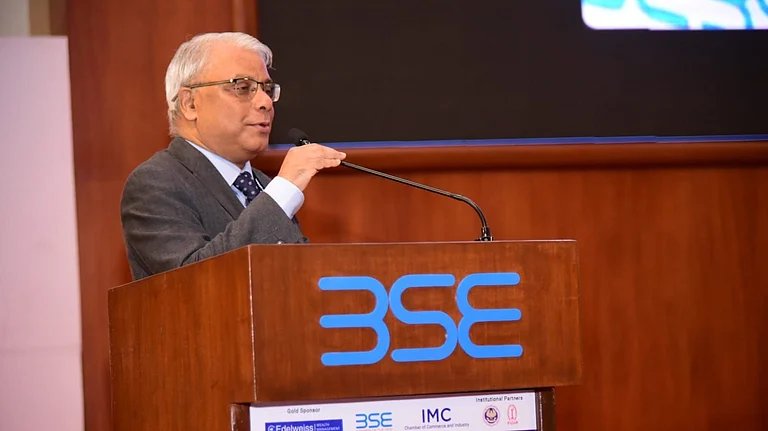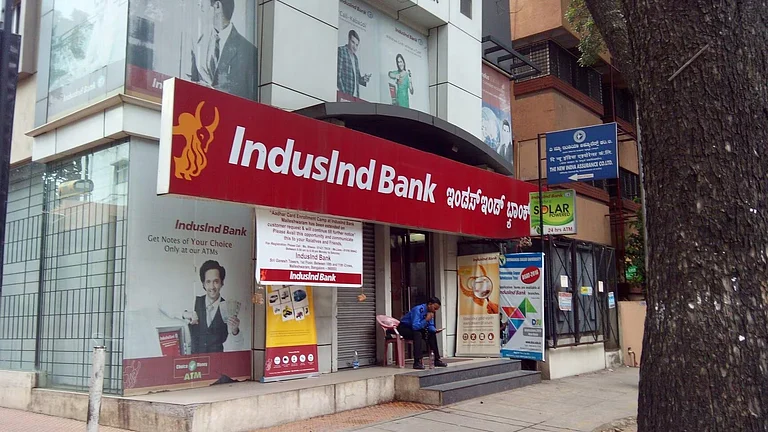
IndusInd Bank has named Rajiv Anand as its new MD & CEO.
Prior to this, he served as Deputy MD at Axis Bank and has worked at Standard Chartered and HSBC.
The private bank's former CEO stepped down amid a ₹1,979 crore accounting lapse linked to the bank’s derivative portfolio.
IndusInd Bank has appointed former Deputy Managing Director of Axis Bank Rajiv Anand as its new Managing Director and CEO after his predecessor resigned following a ₹1,979 crore accounting lapse linked to the bank's derivative portfolio. Sumant Kathpalia, who stepped down earlier this year, was later accused by SEBI of insider trading.
Rajiv Anand, who will be appointed at the helm on August 25 for three years, comes with a background of 35 years in the banking and financial industry.
He has worked with Standard Chartered, ANZ Grindlays and HSBC, before being appointed as Deputy MD at Axis Bank in 2021.
“The Board looks forward to working closely with Rajiv and the management team to deliver strong and robust growth while prioritizing the highest standards of governance. The Board would like to express its gratitude to the Reserve Bank of India for its invaluable support throughout the process,” said Sunil Mehta, the Chairman of the Board of Directors, IndusInd Bank.
A day after Anand's appointment was announced, the private bank's shares surged as much as 5% on the bourses. At the time of writing, it was up about 1% to ₹816.60.
Anand's appointment will have to be approved by the bank's shareholders in the upcoming general meeting.
Domestic brokerage Emkay Global has called the selection of a seasoned private sector banker a "positive long-term development" for the bank, amid speculation of a PSB candidate taking the helm, as per Moneycontrol.
That said, the brokerage flagged significant near-term challenges. "The new CEO will need to rebuild the leadership team, reset the asset-liability profile, strengthen governance practices, and restore stakeholder confidence before steering the bank toward a fresh turnaround," it noted.
While clarity on the bank’s long-term strategy may take time, Emkay believes stock performance will be guided by near-term trends in margins and asset quality, with the risk of "kitchen sinking" still looming. The firm maintained a ‘Reduce’ rating, with a target price of ₹700 per share.
Earlier, during the Q1 FY26 investor call, Chairman Sunil Mehta had indicated that IndusInd Bank was focused on bolstering its top management by scouting high-calibre leadership talent, both internally and externally.
The new appointment comes days after reports said that the Ministry of Corporate Affairs (MCA) has likely found early evidence of corporate governance violations during a suo motu inquiry into alleged accounting lapses.
The CNBC TV18 report said that the ministry is said to be weighing whether to escalate the probe against the Hinduja group-promoted bank to its Directorate General of Investigations or hand it over to the Serious Fraud Investigation Office (SFIO). The bank, for its part, has not received any formal communication from the MCA yet.
In an separate statement, Ashok Hinduja, Chairman of IndusInd International Holdings Limited (IIHL), bank's holding entity, said Anand "will be able to realize the full potential of this strong private bank franchise."
“As the promoter of IndusInd Bank, we offer full support and wish him all success. We trust that with his vast experience, he will be able to realize the full potential of this strong private bank franchise. We greatly appreciate the role that the Board and the Executive Committee played in steering the Bank through this challenging period,” he noted.
Earlier this year, IndusInd Bank jolted investors by revealing large-scale discrepancies in its derivatives and microfinance books. The first shock came in March, when the bank disclosed accounting lapses in internal forex derivative contracts, leading to a downward revision of its reported net worth by ₹1,979 crore. The stock plummeted nearly 27% intraday, triggering an unusual RBI intervention, assuring markets of the bank’s solvency while simultaneously flagging “serious governance weaknesses.”
The troubles didn’t end there. In May, the bank uncovered another ₹674 crore discrepancy, this time in its microfinance portfolio. It admitted to misclassifying ₹595 crore as ‘other assets’ and ₹79 crore as interest income, entries that lacked valid documentation and were reversed in Q4 FY25.
The fallout has drawn intense regulatory scrutiny. SEBI is investigating former CEO Sumant Kathpalia and Deputy CEO Arun Khurana for alleged insider trading, after they reportedly sold shares prior to the disclosure of these lapses. A Grant Thornton forensic audit flagged the transactions, prompting SEBI to impose a temporary market access ban on both executives.

































